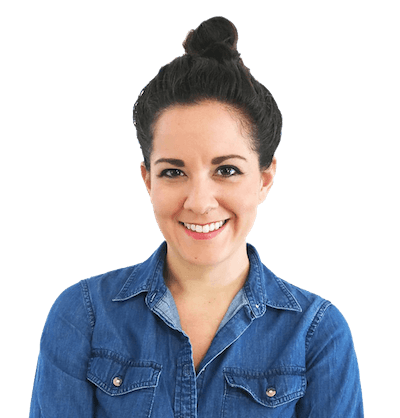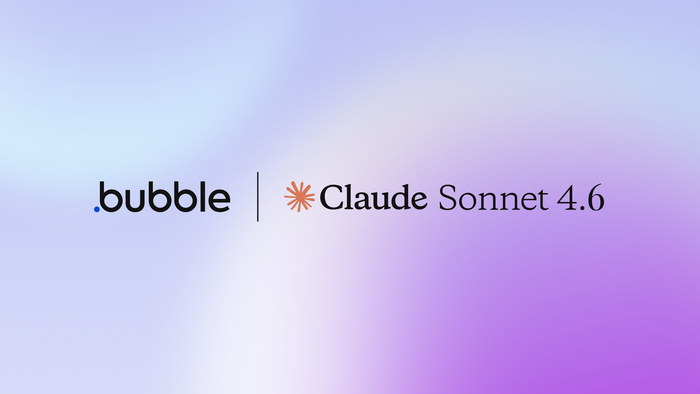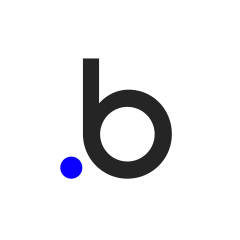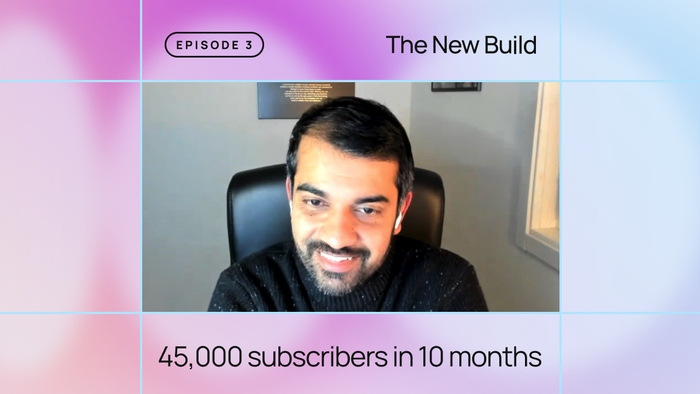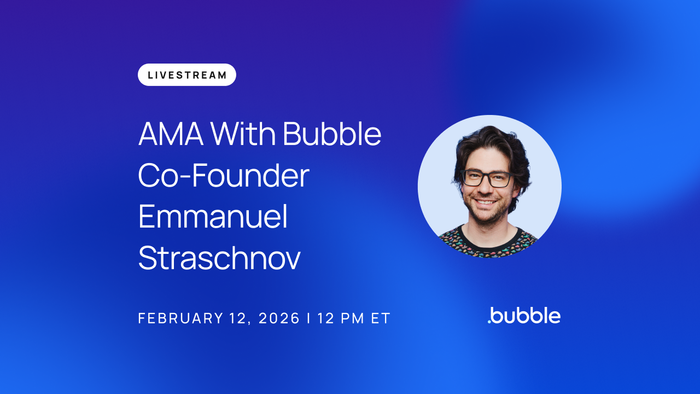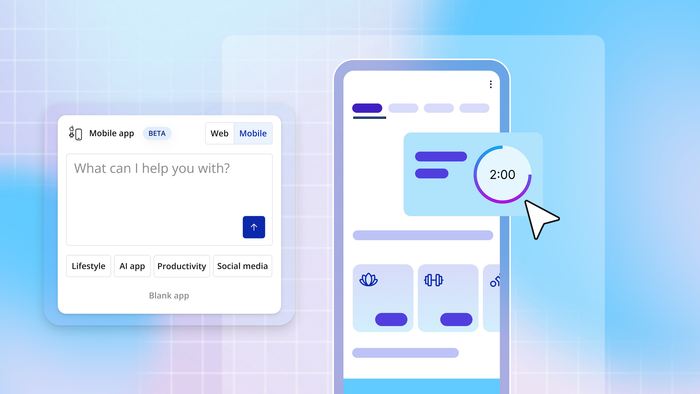Gaby Roman is the founder of Coaching No Code Apps, a place for founders, startups, and business owners to learn and build fully functioning apps and software with no coding required. Courses, consulting, and in-depth lessons teach students how to effectively use no-code tools to build, grow, or start their business.
How did you find Bubble as one of the earlier users on the platform?
My background is in video post production. I worked in New York for several years. I have always been tech minded but definitely not a developer and don’t have a coding background of any kind. I did not have an intention to go down the path. I had an app idea that I wanted to do for myself. I was looking for something to build on my own without hiring someone or learning coding as I was short on time. Bubble was not in the public space at that time. I found Bubble on BetaList. That’s where I had submitted an early version of my app and saw Bubble in the newsletter. It was a life changing product. I tried Webflow but it was more about static pages and not really an app builder. I tried hiring UI builders and they turned out to be only UI and not app developers. So I realized I had to learn this.
The key to my learning was the forum. I found people in the community so generous with their time and helpful. I wanted to give back. I could see the platform was new and there was a need for resources for learning and how to do specific stuff. I was also picking up the platform well enough that I could answer a lot of questions and people were like ‘Could you get on a quick call?’ and I was like ‘Sure’. I had taught video editing and enjoyed being in that position. So teaching a brand new platform on the side with these calls through the forum snowballed into a business within 3 months. I decided I have to build a website immediately as people need hands on help and Bubble is very young and there isn’t anything else available.
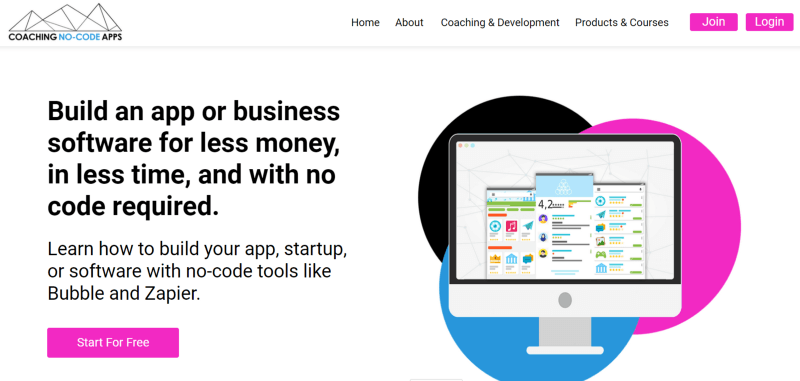
Onto the origins of Coaching No-Code Apps
I started with a free newsletter. I emailed at least once a week with tips and sometimes more if I was really excited :) Subscribers grew and people started writing back asking me to build more tutorials. I saw there is a hole that needs to be filled. I made the newsletter more professional first in MailChimp and then in ConvertKit. I launched a YouTube channel with under 10 minute tutorials to answer the most common questions from the forum as I have only so many hours in the day to help as many people as possible. I eventually created a video course to teach fundamentals of the platform where students can learn on their own schedule and take notes. The course targets people who want to build a business with their apps. With this course, I had established my presence as a teaching authority. I eventually transitioned out of video editing as I was getting requests for 1:1 coaching and app development work though my primary focus is creating content that is self-service. These 1:1 calls are now a collection of services for anyone who wants to build apps on the platform. Now I’m also doing app audits and consulting, my email campaigns are tagged, categorized with available archives. In terms of numbers, I’ve spent over 6,000 hours coaching Bubblers and have hundreds of students currently enrolled in Coaching No Code Apps courses and products. I am expanding to other no-code platforms and excited to become a spokesperson for the movement.
Could you contrast the no-code movement from when you got started to present day?
When I was starting out, I didn’t know no-code was a thing, I just found a tool that could do what I wanted. Now, when I speak to people from dentists to real-estate brokers to stay-at-home moms who want to build meal delivery services — they all have something in their daily lives that they want to make better. Previously, only a subset of people could do that but now no-code is allowing people who are not technical and are consumers of their own lives to make things easier for their own cohorts regardless of industry.
Another key thing I realized much later is that business automation is a driving factor behind this movement. Before you had to create a custom solution, hire someone who knows your industry and believes in your goals while you find the right way to communicate all that to them. Now that is no longer a barrier because no-code tools are meant for you to puzzle together like LEGOs. Bubble is a central hub to connect different services you use. I’m a huge advocate for APIs which can be intimidating but more companies are jumping on the bandwagon.
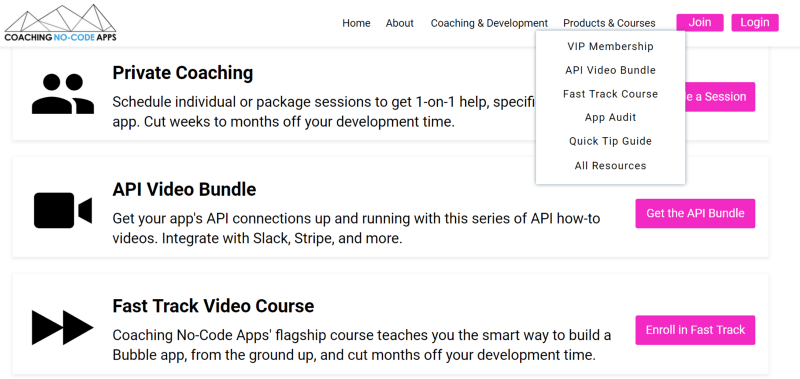
Since you are in a unique position to identify services that fill gaps for your clients by industry, where is the API ecosystem succeeding and where is it failing?
When businesses use APIs for a billing service like Chargebee, they also typically need to subscribe to other services such as an inventory database. Companies should be more transparent that they are compatible with other services to give their users the best experience. When it is hidden under ‘Advanced Settings’ then ‘Developers’ then ‘Integrations’, people get scared because they don’t think they belong there. Friendliness with other services especially without requiring a deep understanding of JSON and XML structure can be a core part of marketing to business owners who often have 10+ subscriptions at a time. In my own experience, plugins and APIs initially terrified me but as I read up on API documentation for specific services, I realized they are not rocket science and once you know one, you know them all.
As you look to the future, what are you excited about for your business?
I want to expand to more no-code tools as well as offer services for native app development. I recommend users to start with a web app but native apps can do even more with devices. I recommend Dropsource but would also like to point to myself for the last mile. I want to ramp up business consulting particularly automating and consolidating internal systems and perhaps incorporating AI and ML services down the line. Through all of this, I want to keep that personal connection with my audience. I help business owners pioneer Bubble within their organizations and they take a chance by building apps themselves. I’ve run into founders like doctors and students who have full-time jobs but find the time to learn how stuff works which allows them to profit in a short amount of time and at a fraction of the typical cost. Bubble can help by continuing to be responsive to their needs even while your user base grows rapidly.
Build for as long as you want on the Free plan. Only upgrade when you're ready to launch.
Join Bubble
